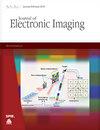Alternative evaluation of industrial surface defect synthesis data based on analytic hierarchy process
IF 1
4区 计算机科学
Q4 ENGINEERING, ELECTRICAL & ELECTRONIC
引用次数: 0
Abstract
Deep learning based defect detection methods require a large amount of high-quality defect data. However, the defect samples obtained in practical production are relatively expensive and lack diversity. The data generation method based on generative adversarial networks (GANs) can address the issue of insufficient defect samples at a lower cost. However, the training process of data generation algorithms based on GANs may be affected by various factors, making it challenging to ensure the stability of the quality of the synthesized defect data. Since high-quality defect data determine the performance and representation of the detection model, it is necessary to conduct alternative evaluations on the synthesized defect data. We comprehensively consider the evaluation indicators that affect the generated defect data and propose an alternative evaluation method for comprehensive data on surface defects of industrial products. First, an evaluation index system is constructed based on the attributes of defect data. Then, a substitution evaluation model for surface defect data is built using a multi-level quantitative analytic hierarchy process. Finally, to verify the effectiveness of the evaluation model, we use three advanced defect detection networks and validate the effectiveness of the evaluation model through comparative experiments. We provide an effective solution for screening high-quality defect data generation and improve the performance of downstream task defect detection models.基于层次分析法的工业表面缺陷合成数据替代评估
基于深度学习的缺陷检测方法需要大量高质量的缺陷数据。然而,实际生产中获得的缺陷样本相对昂贵且缺乏多样性。基于生成式对抗网络(GAN)的数据生成方法能以较低的成本解决缺陷样本不足的问题。然而,基于生成式对抗网络的数据生成算法在训练过程中可能会受到各种因素的影响,因此要确保合成缺陷数据质量的稳定性具有挑战性。由于高质量的缺陷数据决定了检测模型的性能和代表性,因此有必要对合成的缺陷数据进行替代评估。我们综合考虑了影响生成缺陷数据的评价指标,提出了工业产品表面缺陷综合数据的替代评价方法。首先,根据缺陷数据的属性构建评价指标体系。然后,利用多层次定量分析层次过程建立了表面缺陷数据的替代评价模型。最后,为了验证评价模型的有效性,我们使用了三种先进的缺陷检测网络,并通过对比实验验证了评价模型的有效性。我们为筛选高质量缺陷数据生成提供了有效的解决方案,并提高了下游任务缺陷检测模型的性能。
本文章由计算机程序翻译,如有差异,请以英文原文为准。
求助全文
约1分钟内获得全文
求助全文
来源期刊

Journal of Electronic Imaging
工程技术-成像科学与照相技术
CiteScore
1.70
自引率
27.30%
发文量
341
审稿时长
4.0 months
期刊介绍:
The Journal of Electronic Imaging publishes peer-reviewed papers in all technology areas that make up the field of electronic imaging and are normally considered in the design, engineering, and applications of electronic imaging systems.
 求助内容:
求助内容: 应助结果提醒方式:
应助结果提醒方式:


